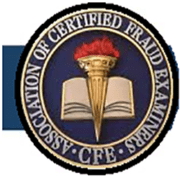 How to find a Private Investigator in Costa Rica? That seems to be the number one question that our colleagues get asked in the states. Followed by, When should I hire a private investigator? Honestly, both of the questions are 100% valid. Finding a Private Investigator is hard; finding an investigator in Costa Rica is even harder. To find a trustworthy, licensed, and experienced investigator, you will need to conduct your own research. Having investigative skills will help you find a PI that fits your needs.
How to find a Private Investigator in Costa Rica? That seems to be the number one question that our colleagues get asked in the states. Followed by, When should I hire a private investigator? Honestly, both of the questions are 100% valid. Finding a Private Investigator is hard; finding an investigator in Costa Rica is even harder. To find a trustworthy, licensed, and experienced investigator, you will need to conduct your own research. Having investigative skills will help you find a PI that fits your needs.
If you found this article, it means you probably came from a Google Search. Because of the internet, nowadays, it seems that everyone is advertising private investigation services here in Costa Rica. In doing so, there are some things you need to know.
First:
There is no governmental oversight of the private investigation industry here in Costa Rica. Likewise, there is no governmental oversight of Real Estate Industry. As one can imagine, this opens the door to all types of opportunities for fraud or a scam. Thus, there are no licensing requirements for either of these two industries here in Costa Rica.
One of the things that you have to remember is that Costa Rica is a small nation and does not have the infrastructure to oversee such industries. So, there really is no easy shop and go for this kind of thing. We can’t teach you how to find a private investigator in Costa Rica, but following the next three tips will making find a reliable and trustworthy investigator an easier decision.
Second:
DO NOT SEND MONEY TO ANYONE INCLUDING A PRIVATE INVESTIGATOR THROUGH WESTERN UNION. It is well documented here in Costa Rica that the majority of scams are carried off by using Western Union. Especially if you are told to send it to another name, not the requestors.
Since Costa Rica does not offer any type of licensing for Private Investigators, anyone can literally begin to offer Investigative Services under any name. The same holds true for mortgage brokers, real estate agents, and other services that normally require licensing in the United States.
But, just because your investigator is not licensed in Costa Rica, it doesn’t mean that he’s not licensed anywhere else. Because Costa Rica is held to different standards, this means that if you get scammed, you won’t be able to come after your investigator. Always protect your assets when you’re conducting business with a company outside of the United States.
Third:
Before hiring a Private Investigator in Costa Rica, make sure that the investigator is qualified to complete the task at hand. Do they have a Private Investigator’s license in the United States? If so, they probably have a company as well.
Always request licensing information, if they don’t have one, ask for a reason as to why they don’t have one. If they came from the United States, ask for proof that they are still in good standing with the licensing department in the United States. Costa Rica is the land of the Wanted & Unwanted. Many people run away from the United States due to legal reasons. Is your private investigator fleeing the country due to unethical practices? You need to make sure.
Trustworthy & Reliable
Does your private investigator have an office in Costa Rica? If so, is the address a legitimate address, or is it a parking garage? Do they have a phone number where they can be reached easily? Will he provide you with a detailed billing of his work and expenses? Does he have a bank account, or will you have to wire him money?
Experience & Education
Do they have any certifications? Are they certified fraud examiners? Anyone can tell you that they have years of experience, but without any type of certification, this is hard to prove. The same holds true when they claim to have Federal Government background experience. How can you prove that? And does this mean that they were on the field conducting investigations, or were they in an office foreseeing investigations?
Experience is a very valuable tool, as long as you have experience in the right field. We have been offering investigative services for over 30 years starting in the United States. Our corporate office, located in Orlando Florida, is still operational in the states. But we don’t offer every type of investigation. We focus on the three main investigation services in order to guarantee quality control.
We hope that If you follow these simple guidelines, and take your time to interview your investigator, you’ll be able to find a private investigator in Costa Rica, and any other part of the world. These tips will save you money and frustration in the long run. We have found over the years that our clients are intelligent people who can recognize a pretender. Real investigators have the verifiable experience, licensing and training to carry out your objectives. if you want to know more please feel free to contact us at Cody L. Gear and Associates.
Don’t forget this tip: A good investigator will never hesitate to give you the information you’re asking for. Remember, you don’t depend on us. We depend on you.
[superbutton href=”http://codygear.com/contact/”] Contact us Today for a Free Consultation [/superbutton]




 I have often thought, why don’t my clients check the backgrounds with who they have a relationship? Relationship background checks are absolutely necessary for
I have often thought, why don’t my clients check the backgrounds with who they have a relationship? Relationship background checks are absolutely necessary for 
 Costa Rica Squatters: Just when it seemed that investing in property in Costa Rica was safe, today saw the expropriation of property occupied by Costa Rica squatters. After a lengthy legal 2-year battle, a group of
Costa Rica Squatters: Just when it seemed that investing in property in Costa Rica was safe, today saw the expropriation of property occupied by Costa Rica squatters. After a lengthy legal 2-year battle, a group of 
 Before traveling outside your native country to another country you should prepare yourself. There are things to know travelling to Costa Rica to avoid unpleasant consequences.
Before traveling outside your native country to another country you should prepare yourself. There are things to know travelling to Costa Rica to avoid unpleasant consequences. 
 1. Do not do anything you would not do in your own hometown: Many foreigners seem to believe they can outsmart the system when they come to a less developed country. Perhaps. the kind manner most Costa Ricans behave with ex-pats. Which in turning them into wishful thinkers. Always bear in mind that the legal system in Costa Rica is Napoleonic, not Common Law. Consequently, things are handled very differently than in the US or Canada.
1. Do not do anything you would not do in your own hometown: Many foreigners seem to believe they can outsmart the system when they come to a less developed country. Perhaps. the kind manner most Costa Ricans behave with ex-pats. Which in turning them into wishful thinkers. Always bear in mind that the legal system in Costa Rica is Napoleonic, not Common Law. Consequently, things are handled very differently than in the US or Canada.


 The perception that
The perception that 
 Are you thinking about buying Costa Rica real estate? I know there are many beautiful places here. But, before you sign on the dotted line, there are several things you need to be aware of. Real estate
Are you thinking about buying Costa Rica real estate? I know there are many beautiful places here. But, before you sign on the dotted line, there are several things you need to be aware of. Real estate 